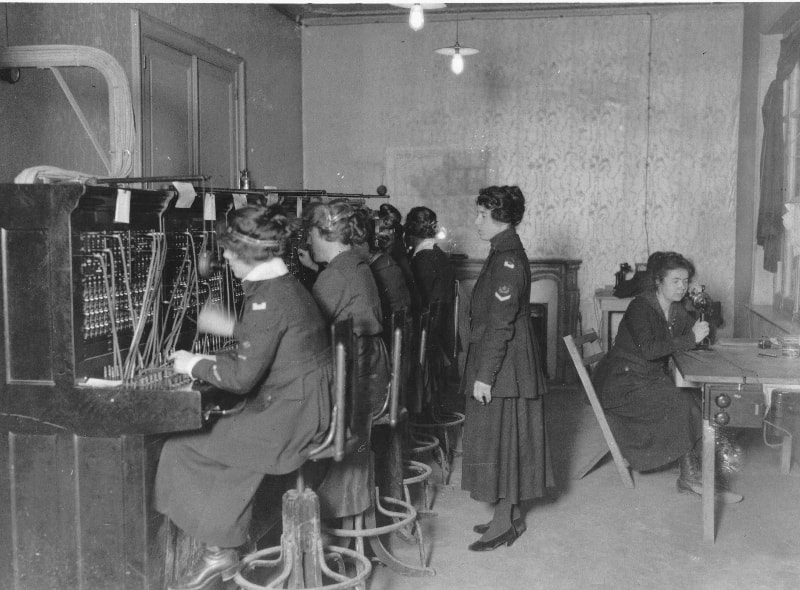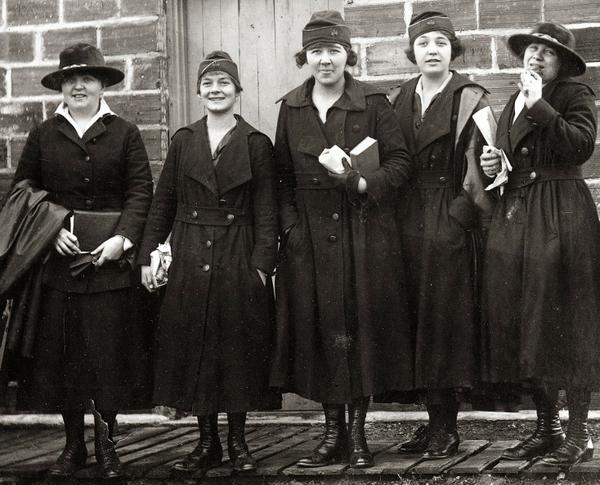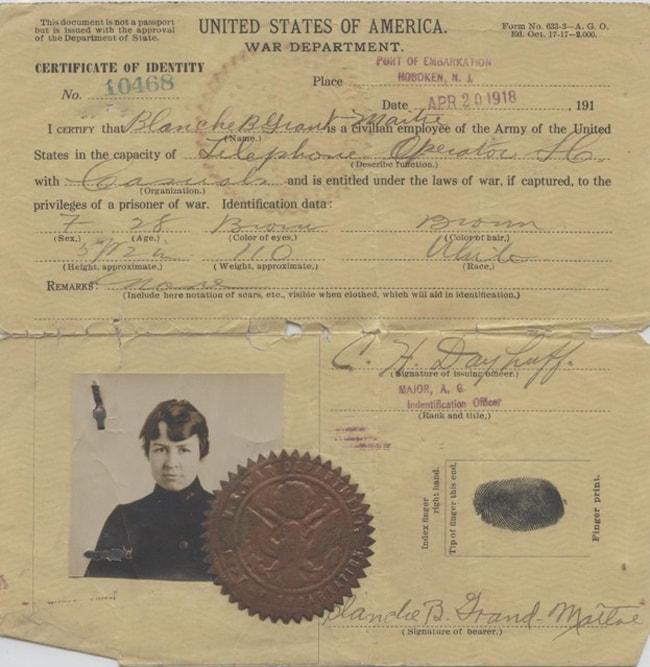|
During my research into the American WWII Nurses captured POW by the Japanese, I learned they were the "first large group" of American women sent into combat. When I wrote PURE GRIT I didn't know about the Hello Girls, a group of American women, telephone operators, who volunteered for the U.S. Army Signal Corps in World War I. The terms "large group" and "combat" can be debated, but what's clear is that here is another group of brave women that have only recently begun to take their rightful place in history. 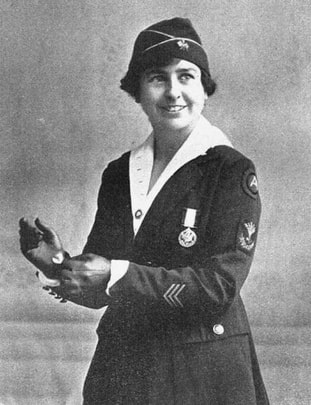 Grace Banker (right) was one of 223 women telephone operators who shipped out to England and France with American troops to aid communication between commanders and soldiers on the battlefield. Grace was the chief operator of a small group sent to the front during the Muese-Argonne Offensive, the deadliest campaign in U.S. military history, killing 26,000 Americans in the final terrible onslaught that ended the war. The seven women operators worked near Verdun, France, connecting calls while German planes flew overhead and shrapnel landed close by. On October 30, 1919, two weeks before the war ended, a number of buildings housing American headquarters went up in flames. The women were ordered to leave the switchboard, but they refused, continuing to connect calls as the fire raged nearer and nearer. They refused to leave their posts until threatened with disciplinary action by their superior officer. When the fire was doused an hour later, the women returned to the switchboard, found some of the lines still working and picked up where they had left off. The seven women later received Distinguished Service Medals for their courage and dedication to duty. When U.S. troops arrived to join the war in Europe, they found the telephone service in France badly damaged by years of combat. Signal Corps crews quickly stretched a far-flung web of lines across Allied territory to hook up communication between units in battle, supply depots and military headquarters. General John J. Pershing, Commander-in-Chief of the American Expeditionary Forces was frustrated with French telephone operators who didn't speak English and tended to spend time on social niceties before connecting calls. He sent an urgent appeal to American newspapers for women who could speak French, operate the complicated switchboards, and free up men for combat. Seven-thousand women applied. Only 450-were chosen for military training, and half of those deployed to Europe. Most were already trained operators employed by U.S. telephone companies, and dexterous enough to connect five calls in the time a man did one. During the Muese-Argonne Offensive, they connected over 150,000 calls a day. Identity papers for Blanche B. Grande-Maitre (above) show her to be five-foot-two and 110 pounds. The contracts the Hello Girls signed differed little from army enlistment papers, and they "signed up for the duration." 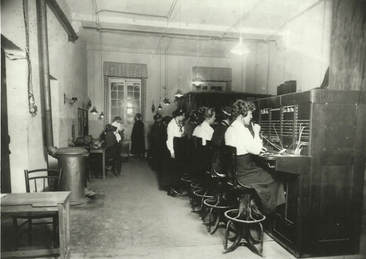 At the switchboard in Tours, France At the switchboard in Tours, France hey were treated just like soldiers and subject to the same “discomforts and dangers” including unheated barracks, bombings and mortar fire, according to the Oct. 4, 1918 edition of the army newspaper Stars and Stripes. “According to their superior officers, both in the Signal Corps and on the General Staff, they have shown remarkable spirit and utter absence of nerves.” General Pershing praised the women's work, saying they had more patience and perseverance for the job than men, and other officers believed they played a crucial role in helping win the war. But like the nurses in Pure Grit, when the hostilities ceased and they returned home, because they were women, they were not given their due. The Hello Girls did not qualify as veterans, receiving no benefits, and only a handful were recognized with medals. It took an act of congress, and sixty years before the Hello Girls received their Honorable army discharges, veteran status and victory medals. Fifty of the women remained alive to enjoy the moment. |
I'm fascinated to discover little-known history, stories of people and events that provide a new perspective on why and how things happened, new voices that haven't been heard, insight into how the past brought us here today, and how it might guide us to a better future.
I also post here about my books and feature other authors and their books on compelling and important historical topics. Occasionally, I share what makes me happy, pictures of my garden, recipes I've made, events I've attended, people I've met. I'm always happy to hear from readers in the blog comments, by email or social media. Archives
September 2023
Categories
All
|
